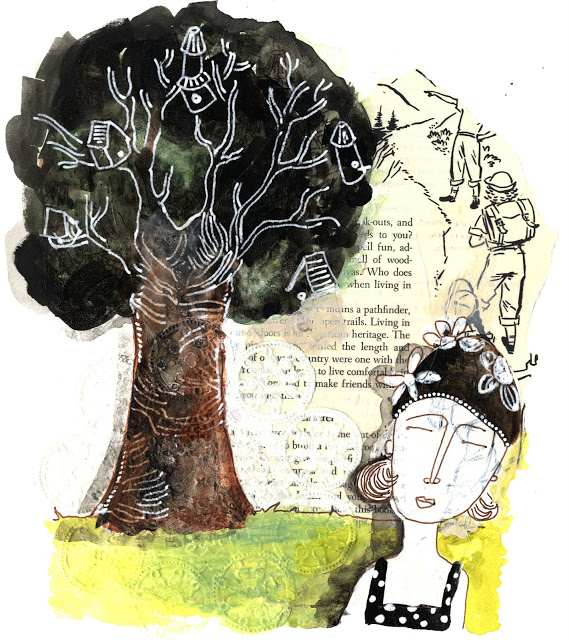
by Jody Mace
When my father was a teenager in Atlanta, wild dogs had become a problem in Adams Park. He and his friends were enlisted by the park rangers to ride through the park on horses, shooting the dogs. He never said much more about the incident, but why would he need to? The bare bones of the story were plenty.
I didn’t entirely believe it, but it was still my favorite dad story. I liked it better than the many variations of how he impressed the staff at restaurants (Chinese, Vietnamese, Russian) with his linguistic prowess. (He punctuated these stories by spitting out guttural sounds that he claimed were phrases in those languages.) I liked it better than the one about how he played golf just one time, with coworkers, and they were amazed at his natural skill. Or how, while in the Air Force, he was invited to become an astronaut, and, after successfully completing training, he decided he didn’t want to be an astronaut after all.
Those stories were lacking a couple things, but most notably, teenage boys galloping on horseback shooting guns in a park.
There were some holes in the story. It didn’t seem likely that any governmental authority would enlist teenagers to shoot at dogs, even back in 1949. But not just that. At the time, my father lived above his father’s grocery store in an urban area, sharing a bedroom with his Yiddish speaking grandmother. He rode streetcars and bought candy. He didn’t have a Wild West kind of upbringing.
He’s eighty now and his memory is shot. It’s not just short-term memory, although the repeated phone calls asking me what time I’m picking him up for lunch can send me around the bend. He’s losing details about things I thought he’d never forget: which college my brother went to, what musical instrument I played as a child. The other day a new acquaintance asked him how his wife died seventeen years ago and he didn’t seem to remember that she died of metastasized breast cancer. He didn’t remember the chemotherapy, the radiation, the surgery, her devastating decline. He answered, “It wasn’t her heart,” then went quiet. Maybe he just didn’t want to talk about it. Maybe it was too traumatic to revisit. But maybe the memory really was gone.
So when he tells his unlikely stories there’s no way to really know which details spring from memory and which are just from the habit of telling the story. When you repeat a story a lot, details gain authority—even if you’re not eighty.
•••
When my son was six, he accidentally knocked a trinket off a table at a flea market. The vendor exploded at my son and towered over him, waving his arms and yelling, until my boy started to cry. The item, which was worthless crap anyway, wasn’t even broken. My husband confronted the vendor. He didn’t actually say much—just, “If you have a problem with him, talk to me!” But we hadn’t even reached the car before the embellishments began. My husband was all in this guy’s face. He shoved him. The vendor cowered before him. He apologized. In some particularly enthusiastic tellings of the story, the vendor wet his pants. When I try to picture this event, I see it just as we tell it. My husband, nose-to-nose with the bully, standing up for our little son. I’m sure that our son, now fifteen, has no doubt about his dad’s heroics at that flea market.
That’s the power of story-telling. The way you tell a story can become more real than what really happened.
So who knows what happened in Adams Park in Atlanta sixty-four years ago? There’s no way to verify.
But that doesn’t mean I wasn’t going to try. During today’s visit after the usual business (the 500-foot roll of professional grade plastic wrap that he bought me off the internet, why his remote control didn’t work, the new brand of pickle relish he’s trying, which of the Harry Potter books is his favorite), I asked him about the story. For the first time, I asked him if it really happened the way he always told it.
And this time he told it a little bit differently. He said, “So they let us ride the horses for free or very cheap, and we rode around and scared the dogs away from the picnic tables.”
“So the part about the guns, that was just made up?”
“Oh, I wouldn’t shoot at dogs.”
“Had you ever ridden a horse before then?” I asked.
“No, I don’t think so.”
And suddenly the picture in my head changed. No longer did I see horses galloping through a park, ridden by wild, gun-wielding boys. Now I imagined city boys timidly perched on gentle horses, walking on a path.
The story was terrible.
“Dad, I think you should tell it the old way.”
But he had already moved on.
“No, I had never shot at anything at that age. Except this one time with Joe Arnold, who you didn’t know. He had a gun, a little .22 pistol, and we decided we were gonna go and shoot things. And I had a knack for it.”
He paused and leaned back.
“I shot a hole right through the middle of a dime.”
•••
JODY MACE is a freelance writer living in North Carolina. Her essays have appeared in O Magazine, Brain, Child Magazine, The Washington Post, and many other publications, as well as several anthologies. She likes to hear people tell their stories, especially when she’s not sure if they’re true.

 Follow
Follow